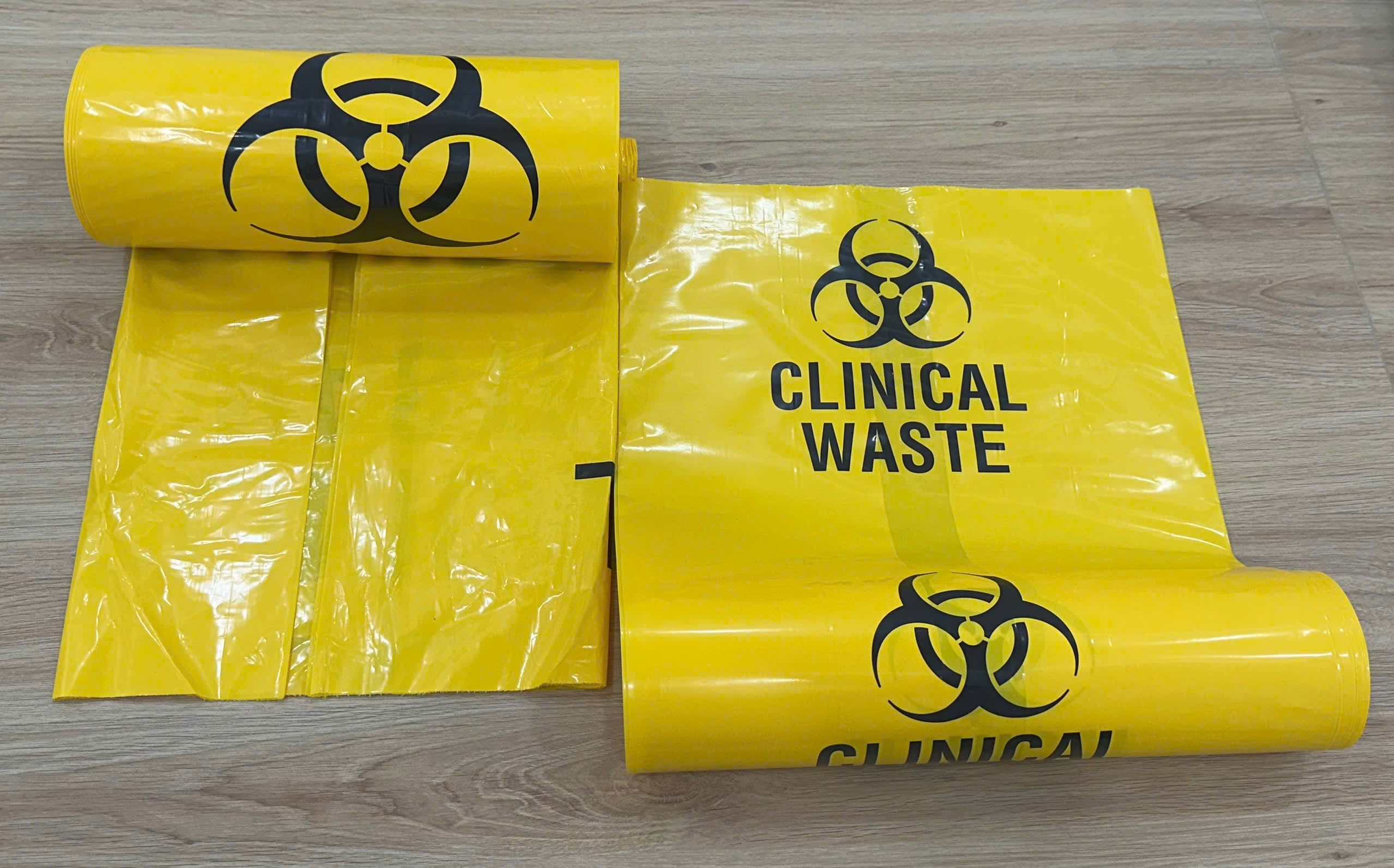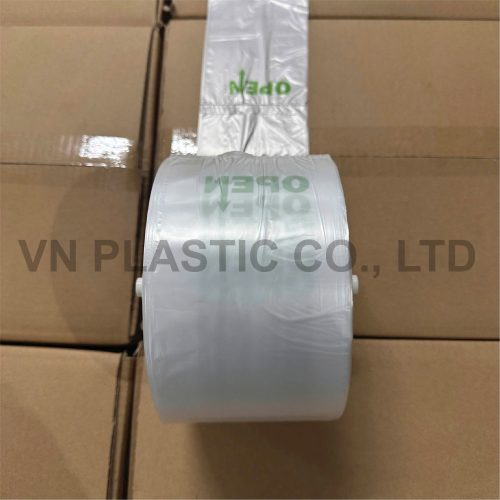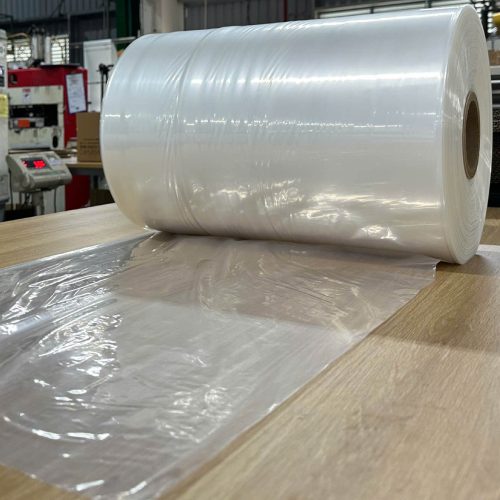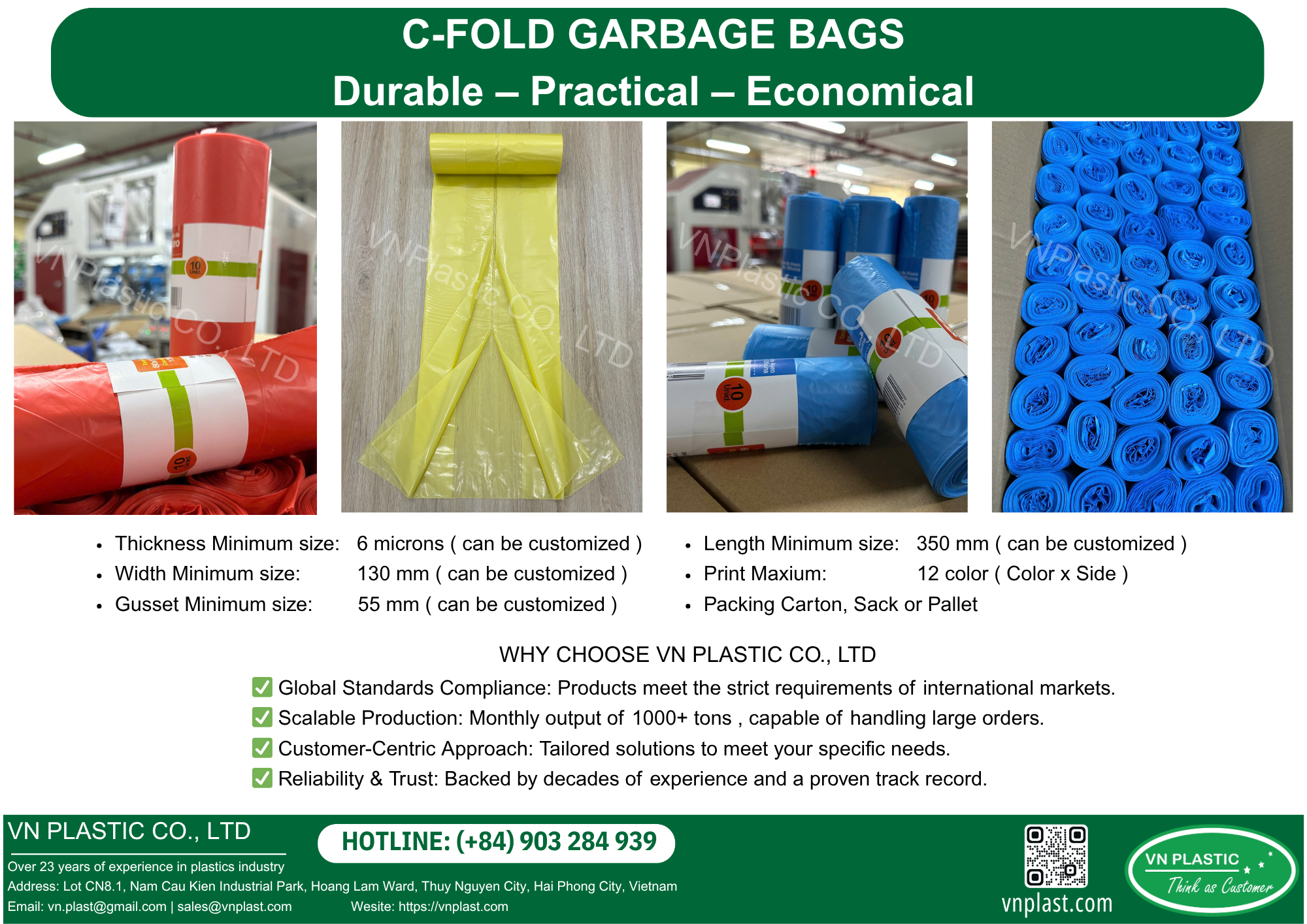In today’s retail landscape, plastic bags have become an essential component for both consumers and businesses alike. This ubiquitous item is not just a vessel for transporting goods; it has evolved into a symbol of convenience, sustainability, and branding potential. As consumers continue to seek eco-friendly solutions without sacrificing practicality, innovative manufacturers are stepping up their game, creating advanced options that meet diverse needs while considering environmental impacts.
Plastic bags
The world of plastic bags has undergone significant transformation over recent years. With technology advancing and consumer preferences shifting towards more sustainable solutions, manufacturers are now producing bags that are not only functional but also eco-conscious. This shift highlights the industry’s adaptability and willingness to innovate in response to challenges posed by environmental concerns.
Evolution of Plastic Bags
Plastic bags have come a long way since their inception. Originally designed as a lightweight, cost-effective alternative to paper bags, they quickly gained popularity due to their durability and versatility. The initial excitement surrounding their use was not without consequences, however. As awareness grew regarding the environmental impacts of plastic pollution, manufacturers began to rethink their approaches.
Today, a range of materials, including biodegradable and recyclable options, are increasingly being utilized in production. These advancements are crucial in mitigating the detrimental effects of plastic waste while still catering to consumer demand for efficient packaging.
The Role of Innovation
Innovation is at the heart of the current manufacturing landscape for plastic bags. Cutting-edge technology enables manufacturers to produce stronger, lighter, and more environmentally friendly bags. For instance, some companies are now experimenting with bioplastics—plastics derived from renewable sources such as corn starch or sugarcane. These materials offer comparable performance to traditional plastics while reducing dependency on fossil fuels.
Moreover, advancements in manufacturing techniques, such as 3D printing and injection molding, allow for customized designs tailored to specific consumer needs. This level of personalization can enhance brand identity and create a unique customer experience, further driving demand for these products.
Consumer Awareness and Demand
Today’s consumers are more informed than ever about the implications of their purchasing choices. This elevation in awareness has led to changing expectations surrounding plastic bags. Shoppers increasingly prioritize brands that demonstrate a commitment to environmental responsibility. As a result, manufacturers are striving to align their products with these evolving consumer values.
Furthermore, the rise of social media has empowered consumers to voice their opinions and share experiences about their favorite brands. Companies that fail to adapt may find themselves on the losing end of this dynamic marketplace. By embracing innovation and sustainability, plastic bag manufacturers can capture a wider audience and foster loyalty among conscious consumers.
Plastic bags for sale
The availability of plastic bags for sale has expanded significantly, with numerous options catering to various industries and consumer needs. From grocery stores to clothing retailers, these bags serve multiple purposes, ensuring ease of use while promoting brand recognition.
Diverse Options Available
When searching for plastic bags for sale, one can encounter an array of choices designed to meet different requirements. Some bags are intended for heavy-duty applications, while others are lightweight and ideal for everyday use. For example, retailers often opt for thicker bags that can withstand the weight of groceries, allowing customers to make multiple purchases in one trip. On the other hand, thin, foldable bags are popular for quick errands and smaller items.
Moreover, custom printing options allow businesses to showcase their logos, reinforcing brand identity while providing practical packaging solutions. The potential for customization is endless, enabling companies to differentiate themselves in a competitive market.
Pricing Considerations
While the myriad options for plastic bags for sale may seem appealing, pricing remains a critical factor for many businesses. Manufacturers must strike a balance between offering quality products at reasonable prices without compromising on sustainability efforts. Understanding market trends, consumer behavior, and raw material costs is essential for manufacturers to remain profitable while meeting consumer demands.
Additionally, the growing preference for eco-friendly bags has led some manufacturers to elevate their pricing structures. While some consumers may be willing to pay extra for sustainable products, others may resist, prompting manufacturers to explore cost-efficient alternatives.
The Future of Plastic Bags in Retail
As the retail landscape continues to evolve, so too will the use of plastic bags for sale. With increasing pressure from consumers and regulatory bodies to adopt more sustainable practices, manufacturers must continually innovate to stay relevant. The transition to more eco-friendly options, such as compostable or reusable bags, may redefine the marketplace.
Amidst this transformation, there remains an opportunity for manufacturers to educate consumers about the benefits and proper disposal methods of these new materials. By fostering a deeper understanding of the lifecycle of plastic bags, manufacturers can help bridge the gap between convenience and sustainability.
Plastic bags for packing
Plastic bags for packing play a crucial role across various industries, helping to streamline operations and ensure product safety during transportation. By utilizing specialized packing bags, businesses can optimize their logistics while maintaining a focus on quality.
Advantages of Using Plastic Bags for Packing
One key advantage of plastic bags for packing is their ability to provide a moisture-resistant barrier. This feature is particularly beneficial for food-related products, as it helps preserve freshness and prevent spoilage. Businesses that sell perishable goods can greatly benefit from this protective layer, ultimately enhancing customer satisfaction.
Additionally, the lightweight nature of plastic bags contributes to lower shipping costs for companies. Many businesses prioritize efficiency, and using plastic bags for packing allows them to minimize excess weight, leading to cost savings in transportation expenses.
Customization Options
Customization possibilities extend beyond branding; businesses can tailor plastic bags for packing to suit specific items or environments. For example, heat-sealed bags can protect delicate components from dust and moisture, making them ideal for electronics. Similarly, zip-lock bags offer convenience for consumers who want easy access to their purchased items.
Innovative manufacturers are now employing advanced techniques to create multi-layered bags that combine various functionalities. Such innovations can lead to improved protection and prolong the shelf life of products while maintaining aesthetic appeal.
Environmental Implications
As the demand for plastic bags for packing continues to grow, so does the scrutiny surrounding their environmental impact. Manufacturers are exploring ways to mitigate negative consequences through the use of recyclable materials or more sustainable production processes.
One promising development involves the introduction of plant-based plastics, which reduce reliance on non-renewable resources. Additionally, educating consumers about the importance of recycling and proper disposal of plastic bags for packing can foster a sense of collective responsibility toward environmental conservation.
Plastic bags for packaging
The versatility of plastic bags for packaging makes them indispensable across various sectors, from retail to industrial applications. Whether it’s safeguarding fragile items or providing an effective means of inventory management, these bags have proven time and again their value.
Applications of Plastic Bags for Packaging
Various industries utilize plastic bags for packaging to enhance product visibility and appeal. Grocery stores often use clear bags for produce, allowing customers to see the quality of fruits and vegetables while keeping them safe from contamination. In the fashion industry, specialty bags can add a touch of elegance to clothing items, reinforcing the brand’s image while protecting garments during transit.
Additionally, plastic bags for packaging cater to food service providers, offering practical solutions for takeout meals. The ease of sealing and transporting food safely ensures customers receive their orders intact, thereby contributing to overall dining satisfaction.
Innovations in Packaging Solutions
Innovation drives progress in plastic bags for packaging as manufacturers continually strive to enhance their offerings. One notable trend is the development of resealable bags, which enable consumers to store items conveniently after opening. This feature is particularly valuable for food products, preventing waste and encouraging repeat purchases.
Moreover, advancements in technology have allowed manufacturers to incorporate smart features into packaging. For instance, some bags now boast QR codes that link consumers to product information, recipes, or promotional content. These interactive elements can engage customers further, turning simple packaging into a platform for communication.
Sustainability Challenges
As the conversation around sustainability grows, manufacturers of plastic bags for packaging face mounting pressures to adopt eco-friendly practices. Implementing biodegradable options presents a challenge, as ensuring durability while maintaining environmental consciousness requires ingenuity.
Companies that successfully navigate these challenges stand to strengthen their market position and appeal to environmentally-conscious consumers. Ultimately, the future of plastic bags for packaging hinges on manufacturers’ ability to innovate within the constraints of sustainability.
Plastic bags california
California has emerged as a focal point in the discussion surrounding plastic bags and their environmental impact. With its progressive policies aimed at reducing plastic consumption, the state serves as a living laboratory for examining the future of plastic usage in general.
Legislative Landscape
California’s approach to plastic bags has seen extensive legislative changes in recent years. The statewide ban on single-use plastic bags marked a significant milestone in the push toward sustainability. By requiring retailers to charge consumers for paper or reusable bags, lawmakers hope to encourage eco-friendly practices while reducing plastic waste in landfills and oceans.
This legislation not only influences local consumers but also sends ripples through the larger manufacturing industry. Manufacturers must adapt to changing compliance standards while exploring innovative solutions to meet consumer demand for sustainable products.
Impact on Manufacturers
As California leads the charge in addressing plastic waste, manufacturers of plastic bags are uniquely positioned to capitalize on this trend. Those willing to invest in environmentally-friendly alternatives may find a lucrative market awaiting them. Companies that specialize in reusable or biodegradable bags are gaining traction among consumers who prioritize sustainability.
Additionally, manufacturers must place emphasis on transparency in sourcing and production practices. Consumers are becoming increasingly discerning about the origins of their products, seeking out trustworthy brands that align with their values.
The Role of Education and Advocacy
With ongoing initiatives aimed at reducing plastic waste, education plays a pivotal role in shaping public perception. Advocates for sustainability are working tirelessly to raise awareness about the need to reduce plastic consumption, emphasizing the importance of responsible disposal and recycling.
Manufacturers can participate in these educational efforts by offering resources and programs that inform consumers about the impacts of their choices and how they can contribute positively to the environment. By collaborating with advocacy groups and supporting local initiatives, manufacturers can establish themselves as leaders in sustainability, further solidifying their position in the marketplace.
Plastic bags for clothes packing
Plastic bags for clothes packing present an effective solution for both consumers and retailers, ensuring garments remain clean and protected during transport. As e-commerce burgeons, the demand for reliable packing solutions has never been higher.
Benefits of Plastic Bags for Clothes Packing
Many retailers have turned to plastic bags for clothes packing due to their durability and effectiveness. Unlike cardboard boxes or paper bags that may easily crumple or tear, plastic bags maintain their shape and integrity, minimizing the risk of damage during transit.
Moreover, they serve as a protective barrier against dirt and moisture, preserving the quality of clothing items until they arrive at their destination. This aspect is especially vital for online retailers, where customer satisfaction relies heavily on the condition of products upon delivery.
Custom Branding Opportunities
Customizing plastic bags for clothes packing allows retailers to enhance brand visibility while providing practical packaging solutions. Imprinted logos and designs can transform ordinary bags into powerful marketing tools.
Additionally, the tactile experience of handling a well-designed bag adds to the overall impression customers have of a brand. A carefully considered packaging design can leave lasting positive impressions, fostering customer loyalty and encouraging repeat business.
The Shift Towards Sustainable Alternatives
As the demand for sustainability rises, manufacturers of plastic bags for clothes packing are responding by introducing eco-friendly options. Utilizing recycled materials or creating biodegradable bags can help address environmental concerns while still providing effective packing solutions.
Retailers should consider implementing these sustainable alternatives as part of their broader mission to reduce waste and promote environmentally-responsible practices. Educating consumers about the benefits of choosing eco-friendly plastic bags for clothes packing can also enhance brand loyalty, as consumers increasingly seek out brands that align with their values.
Conclusion
Innovative plastic bags manufacturers are undeniably leading the industry in response to a rapidly evolving market landscape. By prioritizing sustainability, customizing products, and leveraging technology, these manufacturers are redefining the role of plastic bags in our daily lives.
As consumers become increasingly aware of the environmental implications of their purchasing choices, manufacturers must remain agile, adapting to shifting demands while delivering on quality and functionality. The future of plastic bags lies in the hands of those willing to embrace change and pursue innovative solutions that align with modern principles of sustainability and good business practices. Through collaboration, education, and forward-thinking strategies, the industry can continue to thrive while minimizing its ecological footprint.
Factory: No 5, Lot CN8.1, Nam Cau Kien Industrial Park, Hoang Dong Commune, Thuy Nguyen District, Hai Phong City, Viet Nam.
Tel/whatsapp:(+84)903 284 939
Ws: http://vnplast.com
Email: [email protected] | [email protected]






